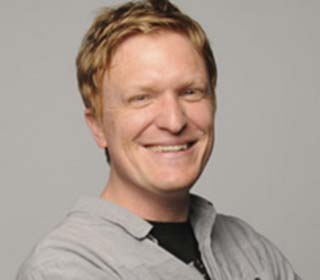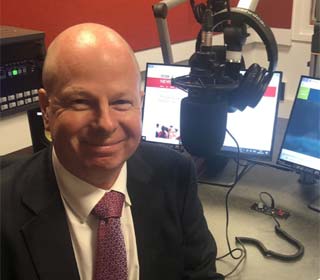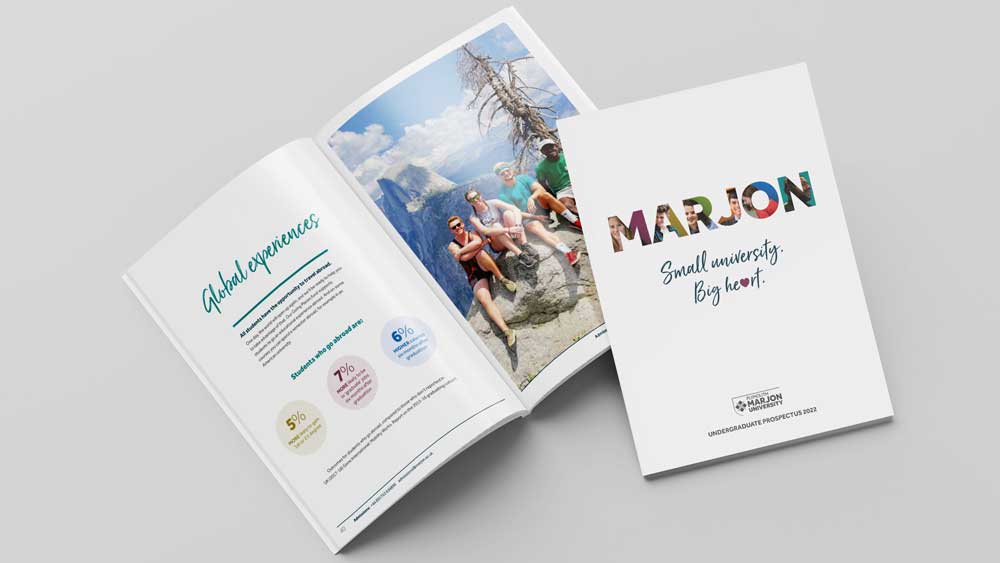
BA (Hons) Journalism
Learn the essential practical skills required by today's newsrooms and media providers. You’ll work closely with BBC South West journalists and producers alongside other industry guests from the BBC, ITV West Country, The Guardian, Plymouth Herald, regional and national freelancers, filmmakers, and broadcasters.


Train at world-class broadcast studios on the BBC South West campus
Entry requirements
Three A-levels at CCC-BBC
Or BTEC triple grades MMM - DMM
Access to HE Diplomas accepted with credits in line with UCAS tariff point range
T Level - Pass (C and above) - M
GCSE Grade C or 4 English Language or an acceptable equivalent qualification
We will accept 2 AS levels in place of one A level but this must be accompanied by 2 A Levels or BTECs (General Studies is excluded)
Applicants with other qualifications and/or experience will be considered on an individual basis and an interview is required
UCAS points 96 - 112
UCAS code P500
UCAS institution code P63
Duration Three years full-time and part-time options available
Course Summary
In 2019 we opened The Workshop, a state-of-the-art TV and radio studio on the BBC South West campus. Our studios enable you to get hands-on experience and guidance in a technical environment, learning from experienced journalists and editors.
Our third-year students are paired with a BBC mentor. One module is taught by BBC journalists, producers and digital filmmakers. You will have the chance to pitch story ideas to commissioning, online, news, and current affairs editors, and will get their advice on your work.
You'll have access to our on-campus 24/7 radio station where you can stream and record podcasts, cover live events, host and broadcast live-lounge music gigs, plays and performances. You'll learn to write scripts for TV and radio, news bulletins, news cues for TV and how to structure radio and TV programmes. We’ll teach you how to self-shoot for TV, record great audio, generate story ideas, and produce, direct and edit your own shows.
Some practical elements are taught in our Journalism and Media Centre on the main Marjon campus where you will have access to a range of Apple devices, professional DSLR cameras and lenses, recording equipment and editing suites all loaded with the latest industry-standard software. Here we learn Adobe programmes, Burli, how to write and design, as well as structure blogs and websites as you create your own identity as a creative and versatile journalist.
Why this course at Marjon?
Learn alongside the BBC at The Workshop studios
Enjoy regular teaching input from experienced journalists
Access to 24/7 facilities and the latest kit
89% of graduates say staff often make the subject engaging (National Student Survey 2024)
Broad industry links to help you develop an amazing portfolio
Small classes where staff can really help your work develop
Modules for this course
Course Snapshot
“ The first year started with the basics of learning how to tell stories for a variety of audiences and platforms. We also covered media law and looked into how journalists develop stories. Year two built on the skills we already learned as we made documentaries for both TV and radio, and wrote articles for a group magazine that’s distributed around the city. In our third year, we’ve been producing content for radio and online in fast-paced news weeks. We will also be making our own magazines and running a marketing campaign.”
1st Year
Serious Skills
Fast News
Journalism in Practice
Making Headlines
Digital Storytelling
Journalism in Context
2nd Year
Investigative Journalism
The Hustle
Trending Now
The Big Show
Slow Journalism
Pod Sounds
3rd Year
And Finally…
The Winter Edition
The Newsroom
The Buzz Feeder
Big Show: Season Two
Current students say...
Pete Chapman
"The main reason I wanted to study journalism at Marjon is the size of the classes. Being in a smaller group means you get more time from your lecturer, who will know your name after the first week! It also allows you to be closer as a class of students, which on a media-based course, is very important when it comes to group work."
Clara Ceballos Soriano
"Here at Marjon, you are supported and taught by doing, experiencing, sometimes failing and then trying again. The lecturers don't just stand there on a platform, give their memorised lesson and then you’re on your own. They actually care about you learning and enjoying yourself. They make their lectures as productive and active as possible and their doors are open for you whenever you need them."
Mike Palmer
"Marjon consistently enables me to learn and produce journalism content that is truly reflective of myself, and of industry standards in a fun, friendly but professional environment. The connections with the BBC, ITV and The Guardian continue to give me invaluable experiences that have really pushed me to heights I didn't think were possible for me."
This course is perfect if you’re curious about...
Creating breaking news stories
Working in a real newsroom
Adapting journalism in the digital age
The future of journalism
Communicating with the world
Uncovering stories and shaping tantalising narratives
“ You just get a good feeling about Marjon. The students and staff seem to have a close relationship, which is so impressive. I go to a lot of institutions to talk about journalism around the country, and that isn’t always the case. There’s just a really good vibe around the place.”
See where our graduates are now
Alex Green
"The course was perfect, it’s so hands-on. You get to learn how to do Journalism, not just talk about doing it. The lecturers are so well connected that you get an abundance of placements. It equips you as a Journalist and you are a Journalist when you finish. I would never in a million years have thought I’d graduate with a first and go on to get a job straight away, and then go on to get another one straight after that."
Alex is now a journalist with BBC Spotlight.
Rikki Cain
"Marjon gave the confidence to aspire for more. I started my degree with little understanding of the industry, and I have always suffered from anxiety and OCD. But the support I received at Marjon from my lecturers was far beyond my expectations, their passion and enthusiasm were inspiring. I did as much work experience as possible, including at Plymouth Live which led to getting a job there. I have met some great people along the way and if it wasn’t for Marjon, I wouldn’t be where I am today."
Rikki is now a journalist with Plymouth Live.
Angela Kalwaites
"One of the best things about the degree was the support provided by the lecturers. I couldn't have got this work at the BBC without having done the course at Marjon. Doing the Broadcast Journalism module gave me the skills I needed to work on the radio.""
Angela now works at BBC Radio Devon.
What might you become?
You can become anything you want to be. Our recent graduates are working with the BBC, Channel 4, ITV, Plymouth Live, Reach Plc, plus a wide variety of online providers, PR, and marketing agencies. Their jobs include newspaper journalism, broadcast journalism, radio production, commissioning editing, news editing, marketing leadership, and video game journalism.
Employability workshops, mentoring, and work experience placements are integral to our journalism programme. We know from working with and speaking to prospective employers that they like graduates to be well-qualified and experienced. We give our students a wide range of opportunities both in-house and externally to apply the skills and knowledge they learn.
How you’ll be taught and assessed?
How will you be taught?
Teaching includes workshops, seminars, tutorials and practical live news days which replicate the industry newsroom. Arrive in the morning and spend the day putting together a news programme for TV or radio or creating a magazine or daily newspaper.
How will you be assessed?
Assessment methods are based on the production of news stories, features, and essays, and you will also be appraised on your performance in work placements.

Mike is an experienced journalist who started his career at the Plymouth Herald and moved on to the sports desk at The Guardian, where he worked, among other things, as a commissioning and night editor, while also appearing regularly on Radio Five and contributing to several other national newspaper and magazine titles. He has since worked as a sports editor at Western Morning News and as a broadcast journalist on BBC Radio Devon, while also teaching on the journalism programmes at Marjon. Mike still works weekend shifts at The Guardian, bringing current industry expertise and contacts to his teaching practice. He said: “The industry changes all the time, so we need to ensure our students are learning the skills they will need from day one, while also underpinning those with the traditional elements of journalism and storytelling which have never changed. We also have great fun while we do it.”
Fees and funding
Fees UK students: £9,790 per annum
This fee covers your tuition and access to course-specific equipment and facilities, as well associated services including access to the library, study skills support, IT support, student support and wellbeing services and membership of the Student Union. There may be additional costs by course.
Funding available for this course
Our Student Funding Advisors offer confidential and impartial advice about your funding options.
Learn moreLecturers

John Roder is a renowned and highly experienced broadcast journalist, and while most people will know him from his commentaries on BBC’s Match of the Day, he is also a regular voice on TV stations all around the world, having worked on every major football tournament you can think of. John has appeared on BBC, ITV, Channel Four, Five, BT Sport, Sky Sports, ESPN, Setanta Sports and Eurosport in the UK; and is frequently heard on Fox Sports, ESPN and beIN Sport. He teaches primarily broadcast skills to our students, from how to act in front of a camera, to live commentary and broadcasting techniques, voice training, podcast skills and more. John also brings a vast network of broadcast contacts, who regularly contribute to sessions with students.
Find out more about studying BA (Hons) Journalism at Marjon

Discover Uni collects data about university courses in the UK. All universities publish Discover Uni data on their online course pages enabling you to compare similar courses at different universities.


.jpg)

